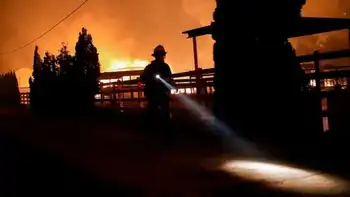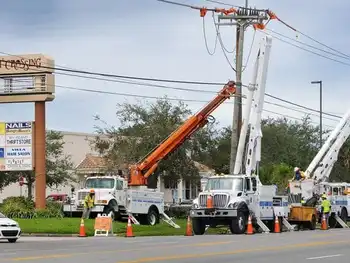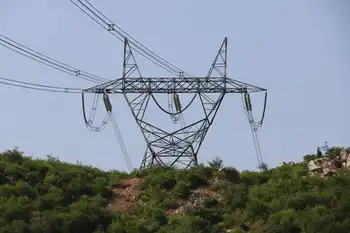Nuclear sector an explosive mess
By Calgary Herald
Protective Relay Training - Basic
Our customized live online or in‑person group training can be delivered to your staff at your location.

- Live Online
- 12 hours Instructor-led
- Group Training Available
That's the embarrassing situation Atomic Energy of Canada Ltd. (AECL) faces.
The reactors (Maple-1 and Maple-2) were expected to replace the NRU reactor at Chalk River by 2000. NRU was shut down due to safety concerns or bureaucratic battles (depending on whom you believe).
But the best-laid plans of nuclear physicists and government bureaucrats don't always go as intended, especially when they involve taxpayer dollars. By 2008, Maples 1 and 2 were eight years overdue, anywhere from $150 million to $500 million over budget and sucking up a reported $10 million more each month. Despite 12 years and a windfall of government money, isotopes were never produced and technical flaws were never resolved.
On May 16, AECL mercifully pulled the plug. A good business decision, but it forces AECL to rely on its ancient NRU reactor to produce isotopes that are in hot demand by medical and research facilities around the world. Ouch. It's a situation akin to Microsoft software developers using 64K computers.
AECL claims these events will have no impact on its ability to produce isotopes or on its international reputation. Spoken during what is clearly a whopping "annus horribilis," one has to wonder about the effects of radiation from nuclear reactors on reasoning skills.
Shutdowns are not unusual at nuclear plants. But an abrupt shutdown due to safety warnings, coupled with government hearings and a legislated restart, is not normal. So, there are legitimate questions about whether Canadian technology can provide these critical medical tools.
As a result, the University of Missouri is planning to challenge AECL as an isotope supplier. MDS Nordion (the medical company that sells and distributes Canada's isotopes) says it's "reviewing its options" and "will pursue appropriate steps" to guarantee future supplies.
AECL also has a PR problem with its Candu nuclear technology used around the world to generate electricity. It has a good reputation, but South Korea and China, which use Candu, are looking elsewhere for new reactors.
Most problematic is that the Canadian Nuclear Safety Committee, which shut down the Chalk River plant, has refused to give new Candu technology the approval needed to bid on projects overseas, or even in Canada. Hence, foreign companies like France's Areva are making inroads on bids in Canada, while AECL had to ask Argentina to license its technology so it could bid on a reactor in Turkey.
Other countries aren't going to make multibillion-dollar commitments to Canadian technology when Canada's own safety commission won't give it the green light.
Like it or not, the campaign against carbon-based energy is going to blow open the market of opportunity for nuclear technology. Nuclear energy is more expensive than oil or gas, but if governments continue with plans for carbon taxes, any advantage will be minimized. Common sense dictates a swing to the production of clean energy by nuclear power instead of taxing carbon-based energies that harm the environment.
There is plenty of potential for Canada to profit, but AECL is trapped in a bureaucratic battle with CNSC and dependent on legislation (e.g. when Parliament ordered the NRU back online and to continue isotope production) for key decisions. That's no way to run a successful business.
AECL's survival depends on privatization, and its own sad business history demonstrates this. In 1991, AECL sold its medical isotope business (Nordion) to MDS Inc. (to create MDS-Nordion) for a reported $165 million.
It was a senseless, sweet-heart deal that gave away Canada's isotopes to a commercial corporation to sell for huge profits. In fact, MDS-Nordion reported a last quarter profit of a cool $80 million. Taxpayers pay for NRU's maintenance and operation, as well as the development of isotopes and the ill-fated Maple reactors. Yet all the profit goes to MDS-Nordion.
I don't blame MDS-Nordion. But it's evidence that privatization is the best way for nuclear technology to survive and thrive in Canada and on the international market.
Private corporations have the money to build technology, create business plans and make timely decisions.
AECL has undergone an extensive review process that has recommended privatization, and sources say the report has gone to the Conservative government. So far, there has been no response, other than to order another review.
Loosening the reins of control on nuclear technology is the only way to save AECL and to protect it from the growing wrath of taxpayers.











